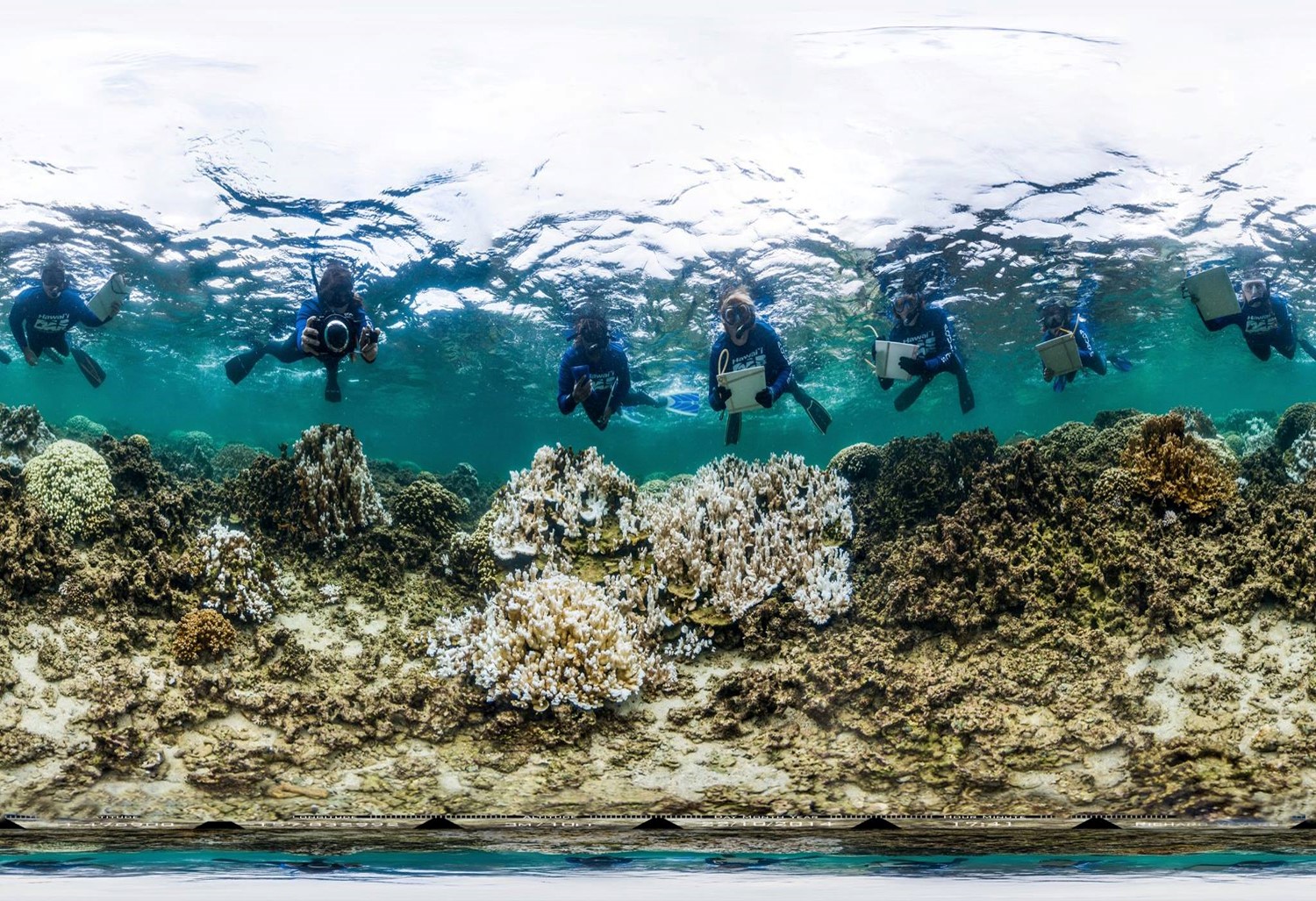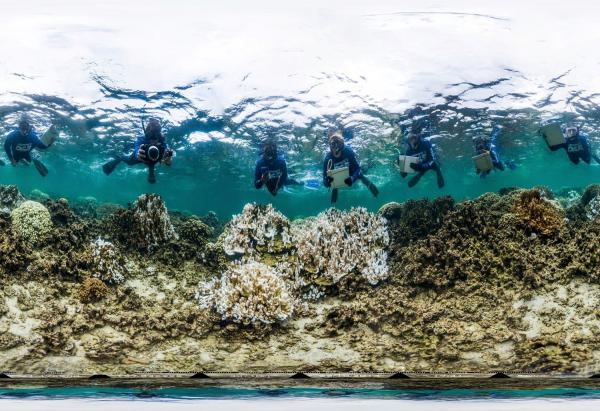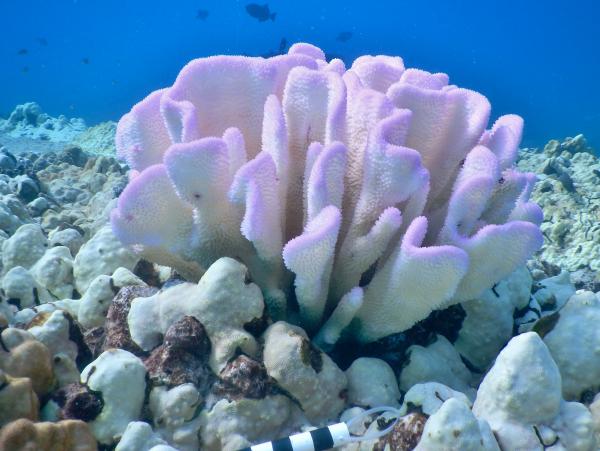KID REPORTERS’ NOTEBOOK
Can Hawaii’s Coral Reefs Be Saved?


Divers for the Division of Aquatic Resources in Hawaii conduct a bleaching survey.
“Corals provide a home and habitat for other organisms, including fish and crustaceans,” says Jason Mehlinger. “Without corals and the reefs they create, we would lose an entire ecosystem that is part of the worldwide balance of the ocean.”
Mehlinger is an education specialist at the Division of Aquatic Resources (DAR) in Honolulu, Hawaii. The DAR, which is a division of Hawaii’s Department of Land and Natural Resources, works to “manage, conserve, and restore the state’s unique aquatic resources and ecosystems for present and future generations.”
Corals are marine invertebrates (animals lacking a backbone) that live in colonies in the ocean. Corals build reefs by producing calcium. These reefs are often called the “rainforests of the sea.”
Lucia with Jason Mehlinger, education specialist at the Division of Aquatic Resources in Honolulu
CORAL BLEACHING
Coral bleaching occurs when coral polyps expel algae that live inside their tissues. The coral and algae depend upon each other to survive. If the coral becomes stressed due to pollution, chemicals, or changes in ocean temperature, the algae may leave the coral. This causes the coral to lose its main food source and its color.
When coral reefs are bleached, Mehlinger says, “it puts them at a point close to being killed or damaged beyond repair.”
In Hawaii, coral reefs grow less than an inch per year. “If we lose one acre of coral, that acre can take 50 to 100 years to grow back,” Mehlinger explains.

Rising ocean temperatures are threatening coral reefs worldwide.
STOPPING CORAL REEF DECLINE
Coral is important to all of us, even if we don't leave near the ocean, Mehlinger says. Coral reefs control the amount of carbon dioxide in the ocean, making them critical to the food chain. Their decline poses a threat to marine life and can cause beach erosion.
Rising water temperatures are the chief cause of coral bleaching. Overfishing, agricultural chemicals, and coastal development are also to blame. “If we don’t change how we’re living and how we treat our reefs,” Mehlinger says, “nothing will stop their decline.”
Kids can help reverse this decline by using less water, organizing beach clean-ups, and eating sustainable seafood.
